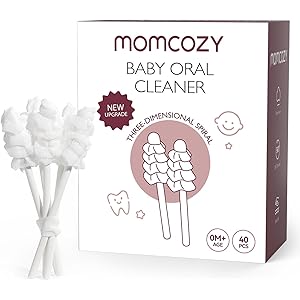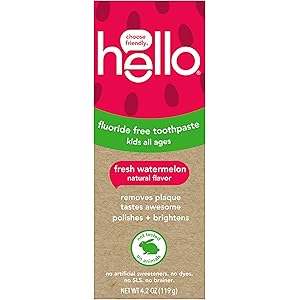hello Fresh Watermelon Fluoride Free Kids Toothpaste, 4.2 Oz Tube
$8.46 (as of October 25, 2025 00:06 GMT +00:00 - More infoProduct prices and availability are accurate as of the date/time indicated and are subject to change. Any price and availability information displayed on [relevant Amazon Site(s), as applicable] at the time of purchase will apply to the purchase of this product.)Understanding Advanced Maternal Age
Advanced maternal age (AMA) refers to the age of a woman who is 35 years or older at the time of delivery. This term is significant in the field of obstetrics and gynecology, as it is associated with various risks and considerations during pregnancy. Women are increasingly choosing to have children later in life due to various factors, including career aspirations, financial stability, and personal preferences. Understanding the implications of AMA is crucial for expectant mothers and healthcare providers alike.
Risks Associated with Advanced Maternal Age
Pregnancies occurring at an advanced maternal age can be associated with a higher risk of complications. These may include gestational diabetes, hypertension, and preeclampsia. Additionally, older mothers may face an increased likelihood of chromosomal abnormalities in their offspring, such as Down syndrome. It is essential for women in this age group to receive comprehensive prenatal care to monitor and manage these risks effectively.
Fertility Challenges for Older Mothers
As women age, their fertility naturally declines. This decline can make it more challenging to conceive, leading many to seek assisted reproductive technologies (ART) such as in vitro fertilization (IVF). Understanding the impact of age on fertility is vital for women considering pregnancy later in life. Factors such as egg quality and quantity diminish with age, which can affect the chances of successful conception and a healthy pregnancy.
Genetic Testing and Screening
For women of advanced maternal age, genetic testing and screening become essential components of prenatal care. Tests such as non-invasive prenatal testing (NIPT) and amniocentesis can help identify potential genetic disorders early in the pregnancy. These screenings provide valuable information that can assist parents in making informed decisions about their pregnancy and the health of their child.
Emotional and Psychological Considerations
Pregnancy at an advanced maternal age can also bring about unique emotional and psychological challenges. Women may experience heightened anxiety regarding potential complications or the health of their baby. It is crucial for expectant mothers to seek support from healthcare professionals, family, and friends to navigate these emotional landscapes. Counseling and support groups can provide valuable resources for managing stress and anxiety during this time.
Healthy Lifestyle Choices
Maintaining a healthy lifestyle is particularly important for women of advanced maternal age. A balanced diet, regular exercise, and avoiding harmful substances such as tobacco and alcohol can significantly impact both maternal and fetal health. Prenatal vitamins, especially those containing folic acid, are also recommended to support the development of the baby and reduce the risk of neural tube defects.
Monitoring and Prenatal Care
Regular prenatal visits become even more critical for women of advanced maternal age. Healthcare providers typically recommend more frequent check-ups to monitor the health of both mother and baby. These visits allow for early detection of potential complications and provide an opportunity for mothers to discuss any concerns or questions they may have regarding their pregnancy.
Support Systems for Older Mothers
Building a strong support system is vital for women experiencing pregnancy at an advanced maternal age. Engaging with other mothers, whether through online forums or local support groups, can provide encouragement and shared experiences. Additionally, involving partners and family members in the pregnancy journey can foster a nurturing environment that benefits both the mother and the child.
Postpartum Considerations
The postpartum period can present unique challenges for older mothers. Recovery may take longer, and the emotional adjustments to motherhood can be profound. It is essential for women to prioritize self-care and seek help when needed. Understanding the physical and emotional changes that occur after childbirth can help older mothers navigate this transition more smoothly.
Future Trends in Advanced Maternal Age Pregnancies
As societal norms evolve and medical advancements continue, the trend of pregnancies at advanced maternal age is likely to increase. Ongoing research into maternal health, fertility treatments, and prenatal care will play a crucial role in supporting older mothers. By understanding the implications of advanced maternal age, women can make informed decisions about their reproductive health and family planning.



